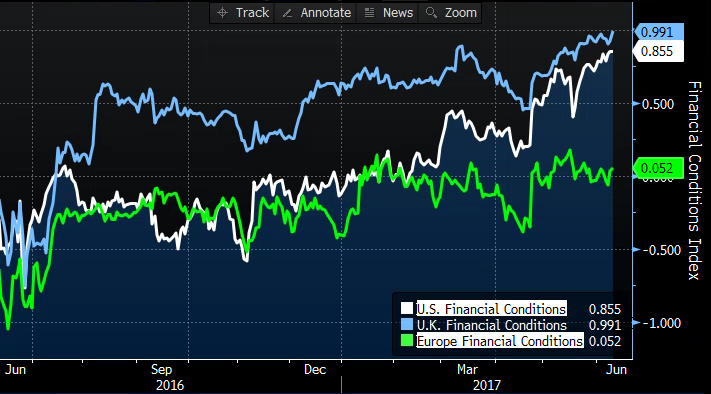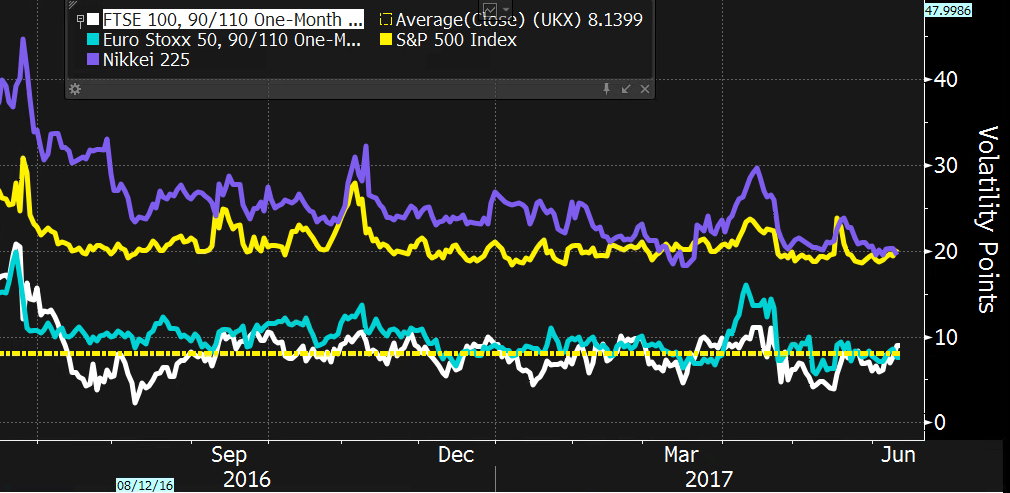Once again, British polls turned out to be unreliable, and the political fallout may linger for some time. While Brexit negotiations are about to get under way, the Conservatives position in the House of Commons has weakened on May’s mandate backed by a slim majority. This is the uncertainty the Pound Sterling reflected on Friday by falling 1.5 percent against major currencies.
A currency that expresses political risk may serve as a reflation backdrop because it can loosen global financial conditions. For example as Figure 1 shows, U.K. financial conditions are the easiest globally despite political uncertainty is perhaps the highest in Britain.
Figure 1

Source: Bloomberg
For financial markets this is good news because uncertainty begets low volatility when capital remains opportunistically on the sidelines. While global central banks are on a very cautious path to gradually tighten policy, equity and bond markets both benefit. Yield curves may flatten and equity multiples continue to expand, even when earnings may see some deceleration and the global economy could soften in the quarters ahead.
As for populism, 2017 turned out to be different because change to status quo is politically more complex. That being said, as discussed in a previous Blog post (see here), the multiplier effect is yet to be felt from the U.K. exiting the European Union and the Trump administration implementing broad tax reform.
For the U.K. this presents a unique opportunity for equity outperformance. With Bank of England firmly on hold, financial conditions loose, the cost to hedge downside risk for the FTSE 100 is one of the lowest among the four major indices (see Fig 2.). Yet the FTSE 100 performance has largely lagged European equities by a 10 to 20 percent margin year to date. Political uncertainty can therefore also have "certainty" of potentially high equity returns. The U.K. despite all its political challenges may surprise to the upside.
Figure 2

Source: Bloomberg

Comments